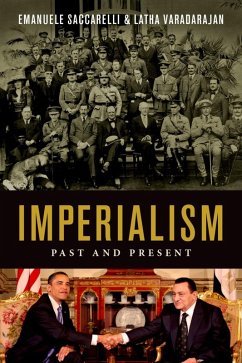After a long hiatus, when it was seemingly banished to the wilderness of esoteric academic debate, imperialism is back as one of the buzzwords of the day. In the past decade many have invoked it as an old specter only to nervously deny its contemporary applicability. A smaller, but highly significant minority has embraced it as a positive good - the only way out of the contemporary political impasse. Meanwhile, the term has continued to be applied to the most diverse range of economic, political, cultural and linguistic phenomena, as well as historical scope. From the Persian Empire of antiquity to contemporary American military operations in the Middle East; from China's ongoing economic penetration of Africa to the old Soviet domination of Eastern Europe, passing through every real or perceived form of "hierarchy" and "privilege", imperialism is now invoked with great frequency and even greater imprecision.
Imperialism Past and Present clarifies the prevailing confusion and provides a concise historical account of imperialism, explaining when and how it emerged and its relation to the colonialism and empires of the past. Should any sort of predatory foreign policy be regarded as imperialist? Does the seemingly universal concern for "humanitarianism" and human rights rule out the applicability of imperialism to contemporary politics? The book examines important theoretical debates about the origins and nature of imperialism, as well as the most significant and dramatic episodes in its actual history - from the 1884 Berlin Conference, through two World Wars, decolonization, and the end of the Cold War. As Emanuele Saccarelli and Latha Varadarajan argue in this provocative book, imperialism is hardly a political artifact. Rather it remains the mainspring of global instability and conflict today.
Dieser Download kann aus rechtlichen Gründen nur mit Rechnungsadresse in A, B, BG, CY, CZ, D, DK, EW, E, FIN, F, GR, HR, H, IRL, I, LT, L, LR, M, NL, PL, P, R, S, SLO, SK ausgeliefert werden.


